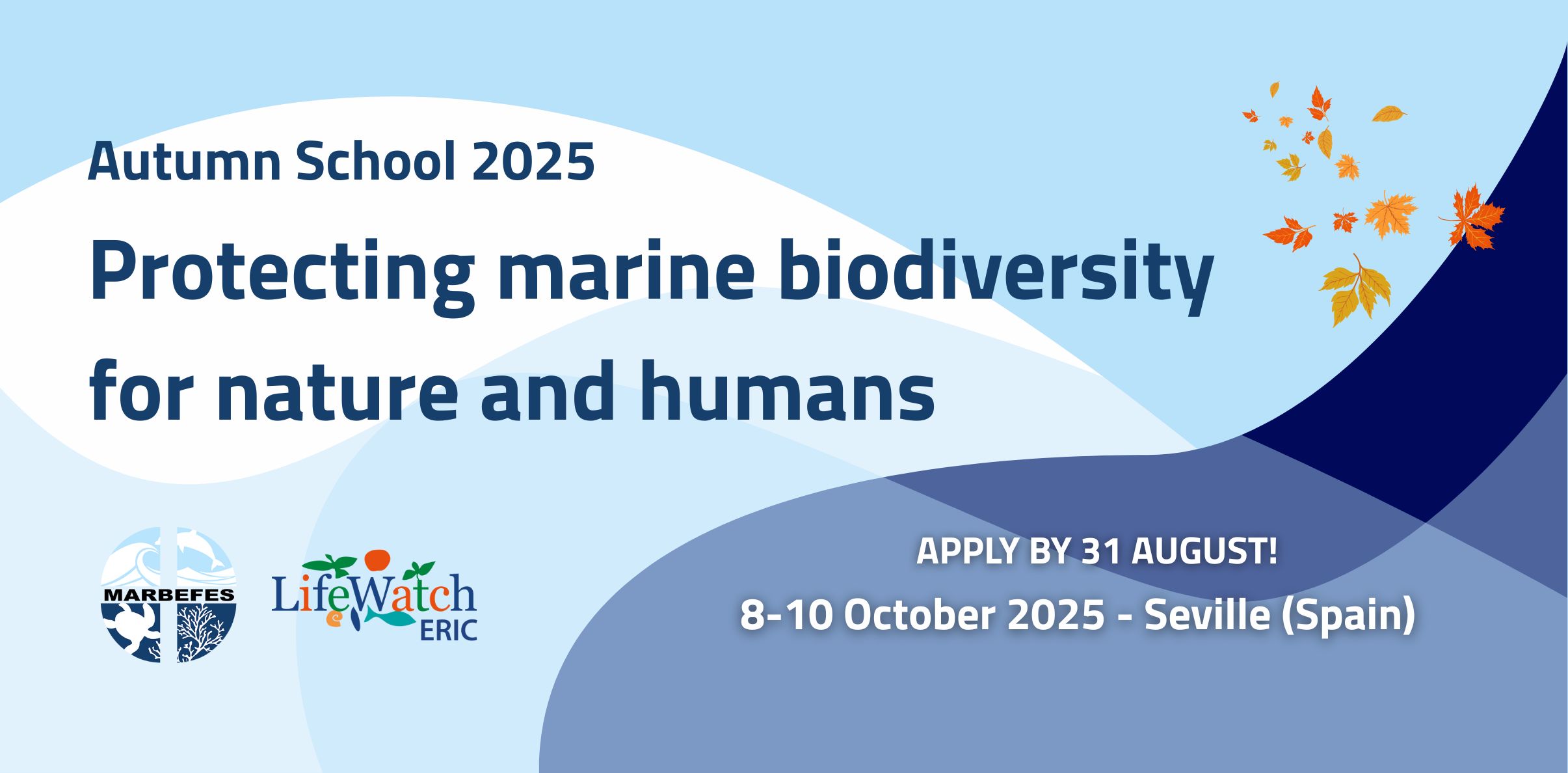
Great news! The MARBEFES Autumn School 2025 has now opened its Call for Applications, giving 20 participants the possibility to book one of the limited places by 31 August.
MARBEFES (MARine Biodiversity and Ecosystem Functioning leading to Ecosystem Services) is a EU-funded project aiming to evaluate and characterise the links between marine biodiversity, ecosystem functioning, ecosystem services and the resulting societal goods and benefits in coastal communities.
The Autumn School “Protecting marine biodiversity for nature and humans” will take place in Seville (Spain) from 8 to 10 October 2025. It will offer participants travel, accommodation and lunch (see terms and conditions), for the duration of the programme, and has the objective of presenting one of the main project’s results: a set of easy-to-use-tools to help practitioners and policy makers maximise the ecological value and optimise a sustainable socio-economic use of the marine system for current and future generations.
The school programme will consist of four training modules:
- Assessing biodiversity, ecosystem function and ecosystem services
- Assessing ecological structure and functioning
- Biodiversity and climate change
- ARIES tool (assessment component)
- Risks and impacts
- Assessing risks and hazards to marine biodiversity
- Broad-scale measures of biodiversity and habitat quality
- Valuing nature
- Ecologically valuing biodiversity – system levels
- Socio-cultural valuation and biodiversity
- Socio-economic valuation of biodiversity
- ARIES tool (valuation component)
- Decision-making for management
- Social-ecological systems analysis in marine management
- Biodiversity management and the role of decisions support systems DSS
If you are a student, early career scientist, young researcher or early career practitioner interested in biodiversity and ecosystem assessment and measurement, and ecological, social and economic evaluation, apply from this page: https://www.lifewatch.eu/marbefes-autumn-school-2025!